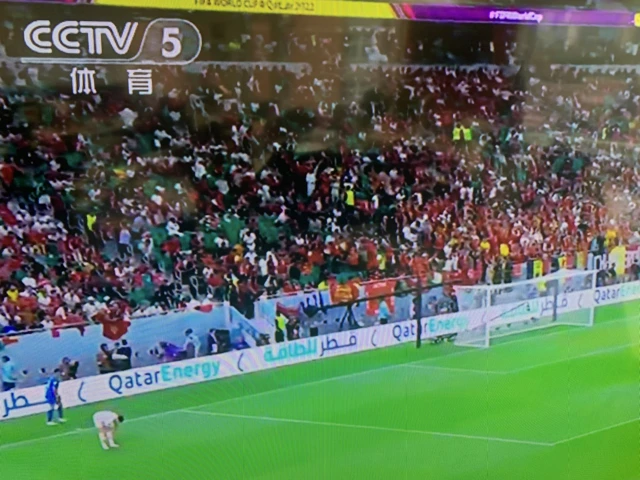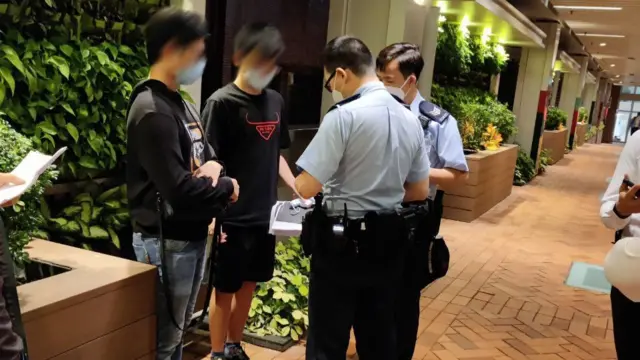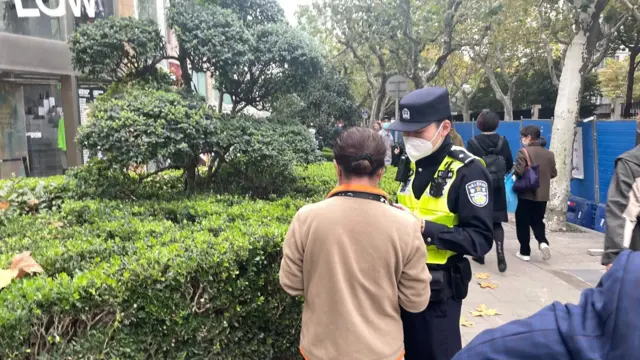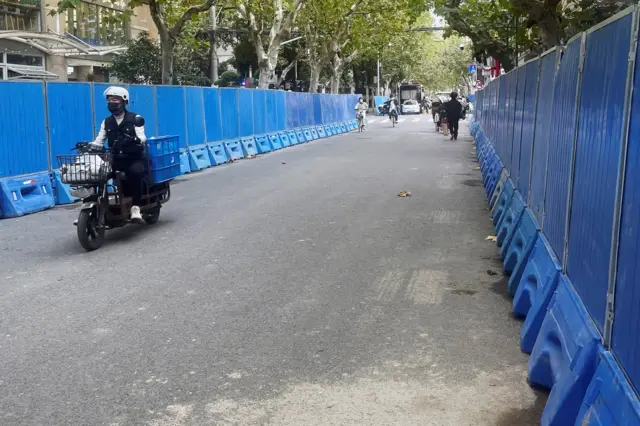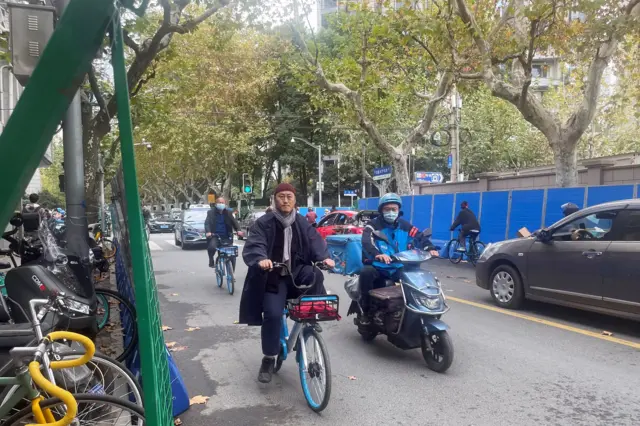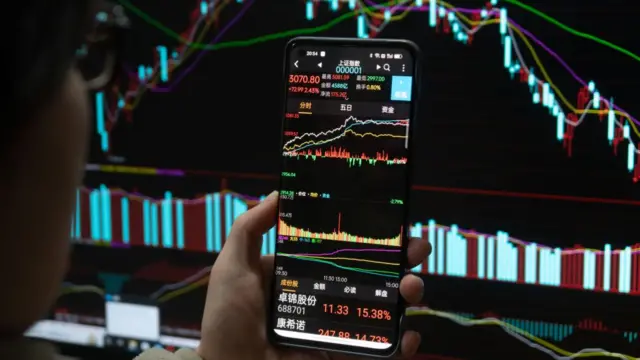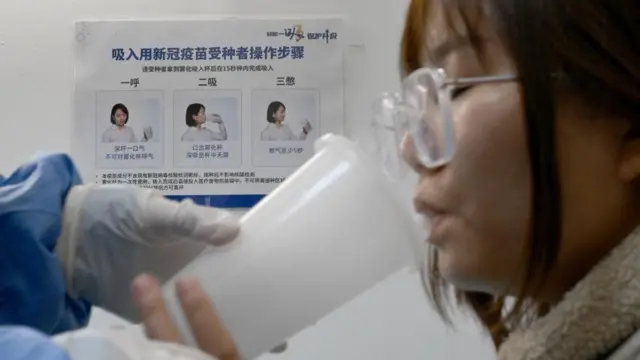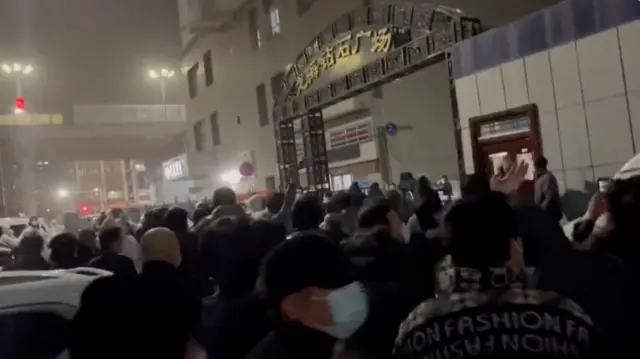'I’m not foreign forces, I’m a Chinese citizen'published at 08:12 GMT 28 November 2022
Of all the lines we’ve heard from the protesters, one doesn't articulate any political demand - but does carry a crucial message.
“I’m not foreign forces, I’m a Chinese citizen” - this sentence has appeared on some pictures circulating online, said to be taken from university campuses and graffiti in various cities.
The Chinese government often alleges that "foreign forces" are behind expressions of dissent. It has blamed “collusion with foreign forces” for protests in Hong Kong, Xinjiang, Tibet and other regions in the past.
With the weekend’s protests gaining attention across the country and abroad, some internet users are alleging foreign involvement and others are pushing back.
"Is there foreign force? Maybe. But do you think foreign forces can organize activities across the country at such a large scale overnight, and give people money for holding white papers? I would say you underestimated our surveillance network," a Weibo post liked 28,000 times reads.
"Foreign forces won't be able to enter the country because their health code would be red," another post liked more than 4,000 times said.
